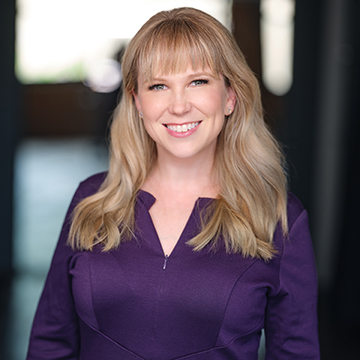NUCATS Continues to Improve, Innovate, Implement Translational Science Initiatives
During a one-day summit marking the start of the Northwestern University Clinical and Translational Sciences (NUCATS) Institute’s second year of UM1 funding, one of the ongoing challenges facing all CTSA hubs took centerstage during a dynamic keynote presentation.
A new mandate for all CTSA hubs now requires improving “translational science,” an often difficult to understand concept for many in the CTSA hub workforce and their constituents across the university and its clinical affiliates. Rachel Hess, MD, MS, who has led the successful Utah Clinical and Translational Science Institute UM1 into its third year of this transition away from clinical research support, explained it well. Utah’s UM1 has an established framework whereby translational science aims to develop, test, and scale innovative methods, tools, techniques, and best practices to support translational research on any and every disease. The goal is to more rapidly advance new discoveries from bench to bedside to population, to improve outcomes of many diseases for all persons and communities. Hess illustrated this concept — generating scientific and operational innovations to speed the translational research pipeline — with a slide void of text but showing a single laboratory mouse perched on its hind legs.
The animal, it turns out, was a “knockout” mouse, first discovered by Mario Capecchi, PhD, at the University of Utah. Capecchi was awarded a Nobel Prize in Physiology or Medicine in 2007 for discovering with collaborators how to “introduce specific gene modifications in mice by the use of embryonic stem cells,” inactivating or, “knocking out,” specific genes so their functions could be determined. Since then, this tool has discovered genes contributing to innumerable human diseases ranging from cancer and heart conditions to Parkinson’s and multiple sclerosis. The idea of the mouse itself, Hess says, is translational science. In contrast, the projects that used such mice to identify genes causing many different diseases are examples of translational research. The NUCATS UM1 specifically funds innovating new ways to accelerate research that will better illuminate our understanding of a full range of human disease to improve health for all, just as these mice sped a broad swath of translational research.

Gathering at the start of the year gives us the space to reflect, align on priorities, and ensure we remain responsive to the evolving nature of our work.”
The day-long event accomplished many things.
“As we head into the second year of our seven-year grant, it’s important that we take the time to come together — in person, as a team,” says Nicole Woitowich, PhD, NUCATS executive director and research associate professor of Medical Social Sciences. “Gathering at the start of the year gave us the space to reflect, align on priorities, and ensure we remain responsive to the evolving nature of our work.”
Following opening remarks from NUCATS multiple principal investigators Richard D’Aquila, MD, Sara Becker, PhD, and Clyde Yancy, MD, MSc, the annual meeting revisited successes from the past year, while also looking ahead at how the institute will improve, innovate, and implement translational science initiatives at Northwestern over the next 12 months.
Among the institute’s biggest accomplishments was the strengthening of its Hub Liaison Team (HLT), comprised of members from the Ann & Robert H. Lurie Children's Hospital of Chicago, Shirley Ryan AbilityLab, Northwestern Medicine, McCormick School of Engineering, Weinberg College of Arts and Sciences, and School of Communication.
“The value of the Hub Liaison Team is tremendous, especially from the perspective of making connections with aspiring individuals in Northwestern Medicine who aren't downtown,” says Michael Ellis, PT, DPT, professor of Physical Therapy and Human Movement Sciences and Physical Medicine and Rehabilitation, and director of translational rehabilitation research at Northwestern Medicine. “The HLT champions are in a position to facilitate connections that otherwise would not happen due to traditional barriers.”
Year one also saw renewed NUCATS management infrastructure, the launch of numerous advisory and integration committees, improved data intake and access workflows, the launch of a Clinical Research Professional Community of Practice (with 220-plus members), expanded mentor training workshops, support for two largescale pilot projects, and more:
- Trio of Investigators Receive NUCATS Pilot Funding
- Bucek Named NUCATS Director of Evaluation
- Cameron Named Senior Director of NUCATS Mentoring and Leadership Development
- Center for Clinical Research Grows Under Peters' Leadership
- EQuaTR Conference Illuminates Complexities of Research Environments
- Inaugural Chicagoland Community Research Fellows Named
- Informatics, Data Science Take Center Stage
- Changing the Way We Talk: How Science Communications Brings Research to the Masses
- Recruitment & Retention Service Launched
The year-two kickoff concluded with strategic aim integration discussions, an evaluation workshop, and flash talks by UM1 Pilot Awardees Rachel Zmora, PhD, and Susan Parker, PhD.
Written by Roger Anderson




